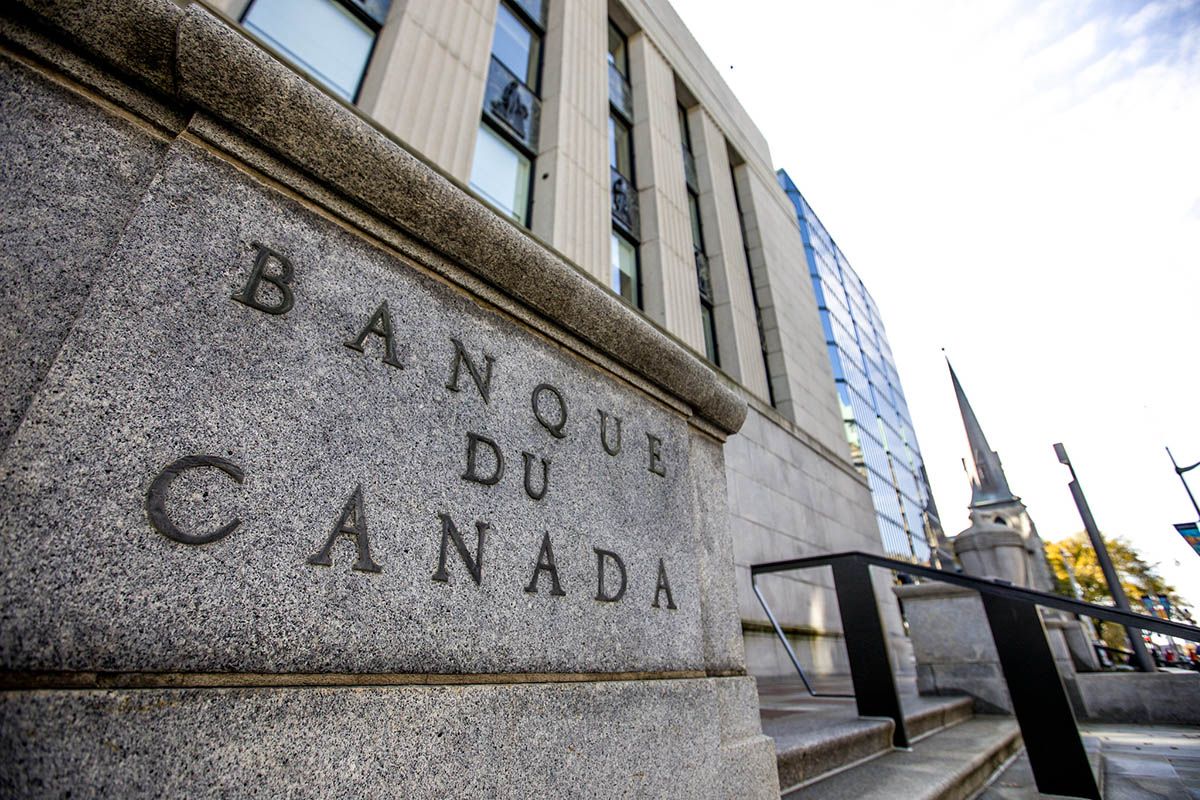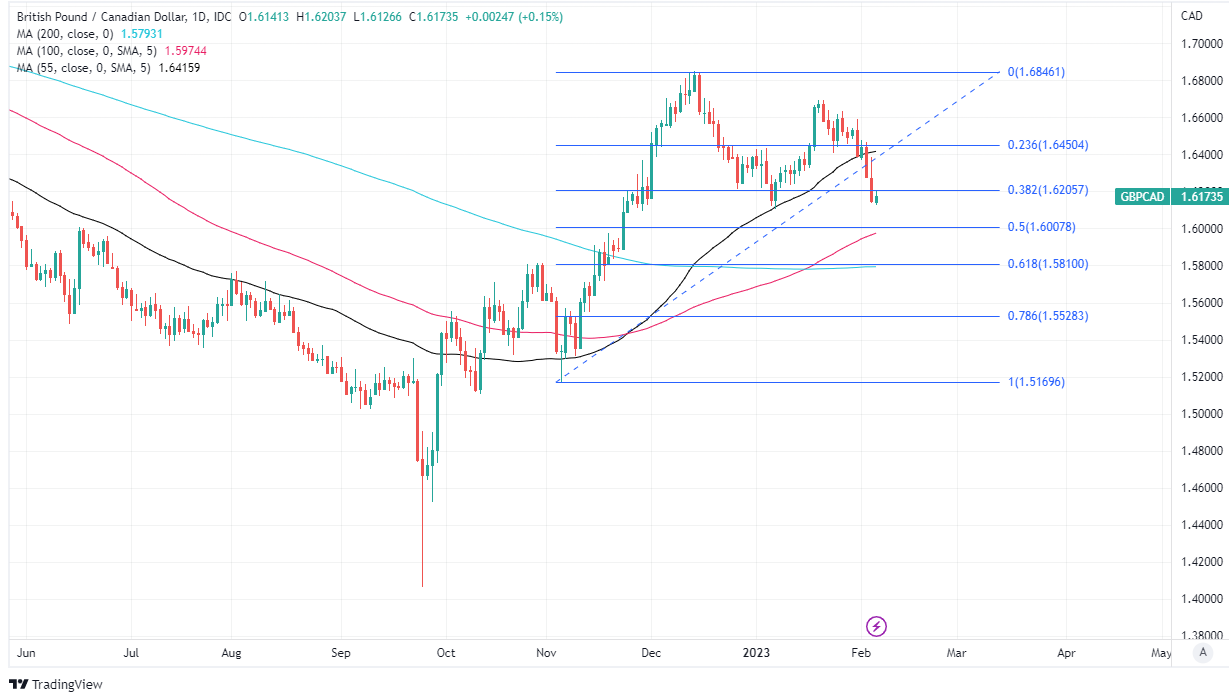GBP/CAD: Swimming Against the Tide this Week
- Written by: James Skinner
-
- GBP/CAD digs in heels near one-month lows
- Steadier on feet but downside risks still linger
- BoE speakers & UK GDP data the highlights
- BoC Governor speech, CA jobs also in focus

Image © Bank of Canada, Reproduced Under CC Licensing
The Pound to Canadian Dollar exchange rate edged higher to open the new week but for some strategists it remains a preferred expression of bearish views on the outlook for Sterling, suggesting it could struggle to fully recover the ground lost in last week's setback.
Sterling an outperformer among G20 currencies in Monday trade when it lagged behind only the U.S. Dollar and Chinese Renminbi following remarks from the Bank of England's (BoE) Catherine Mann detailing a preference for another increase in Bank Rate at the next meeting.
Monday's gains lifted GBP/CAD from a one-month low, helping draw a tentative line under losses sustained following last Thursday's decision in which the BoE appeared to adopt a non-committal stance on the outlook for Bank Rate.
But for some forecasters and trading strategists this is unlikely enough to discourage bearish views on the outlook for the Pound and GBP/CAD, which has been tipped as a sell at Citi alongside some other Sterling pairs.
"I remain bearish on GBP RV [relative value] crosses with longs in EURGBP and shorts in GBPJPY and GBPCAD our preferred plays," writes Vasileios Gkionakis, head of European FX strategy at Citi, in Thursday commentary.
Above: GBP/CAD at daily intervals with Fibonacci retracements of November rally indicating possible areas of technical support for Sterling. Selected moving averages denote prospective support and resistance. Click image for closer inspection.
"UK house prices are in the midst of a serious correction lower which points to significant GBPJPY losses; and, 55bps of cuts priced for the BoC vs just 20bps of cuts priced for the BoE (H223) seems rather inconsistent with fundamentals," Gkionakis adds.
S&P Global's UK Construction PMI survey warned on Monday that January brought with it the steepest drop in residential building work since shortly after the onset of the pandemic, making the house building category the weakest within the construction sector early in the New Year.
"Lower volumes of residential work were attributed to rising borrowing costs, unfavourable market conditions and greater caution among clients," S&P says.
"Some firms cited optimism that confidence would eventually return to the housing market over the course of 2023, assisted by a stabilisation in borrowing costs," it adds in the summary of the survey results.
Falling activity in the construction sector is a risk to employment and a headwind for the overall economy but for Sterling exchange rates, the BoE policymakers' remarks and this Friday's final quarter GDP report are likely to matter more in the days ahead.
Above: Financial model-derived estimates of probable trading ranges for selected currency pairs this week. Source Pound Sterling Live. (If you are looking to protect or boost your international payment budget you could consider securing today's rate for use in the future, or set an order for your ideal rate when it is achieved, more information can be found here.)
Multiple other Monetary Policy Committee members are set to speak publicly this week including two appearances from Chief Economist Huw Pill on Monday and Friday, while Bank of Canada (BoC) Governor Tiff Macklem is due to address the Chartered Financial Analyst Society of Quebec on Tuesday.
"Governor Macklem speaks tomorrow on “How Monetary Policy Works.” January employment (Friday) is the only key release this week," says Adam Cole, chief FX strategist at RBC Capital Markets.
"RBC Economics is expecting a small increase in employment on Friday (roughly 5K workers) to add to the 176K surge in positions that played out over the prior four months," he adds.
The big downside risk for the GBP/CAD this week is that Friday's GDP data suggests the UK economy slipped into recession last quarter, which would risk potentially prompt financial markets to revise expectations for Bank Rate lower.
Whether or not a recession is now underway remains a close call with economists widely expecting that growth stalled at 0% owing to an anticipated -0.3% reading for December GDP.


